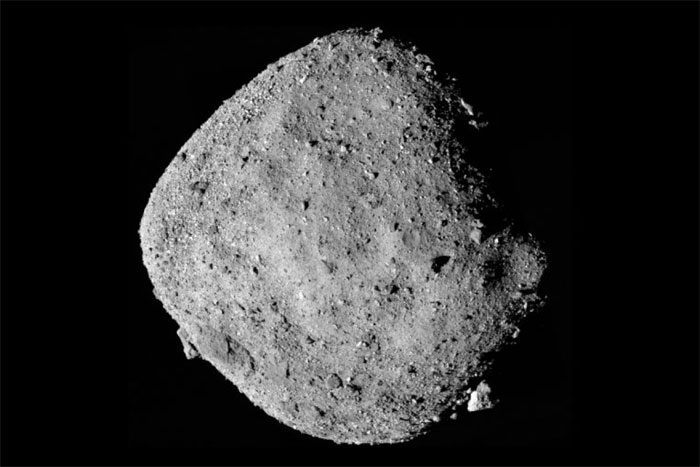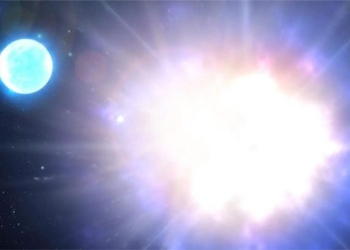Bennu – the diamond-shaped asteroid that scientists believe harbors the seeds of primordial life in the Solar System – still poses a certain level of danger to Earth, according to NASA.
According to AP, NASA’s recent statement, based on research led by Dr. Davide Farnocchia from the Near-Earth Object Research Center at NASA’s Jet Propulsion Laboratory, indicates that the likelihood of Bennu colliding with Earth is higher in the new calculations, but there is no need for excessive worry.

Asteroid Bennu – (Photo: NASA)
The study is based on extensive data collected by NASA’s Osiris-Rex spacecraft. This spacecraft has now approached Bennu for a mission to collect a sample directly from this asteroid, which is expected to return to Earth by 2023.
Before Osiris-Rex arrived, scientists believed that the likelihood of Bennu colliding with Earth was 1 in 2,700 until the year 2200. However, new data now suggests that the probability should be 1 in 1,750 until the year 2300, with the most dangerous date being September 24, 2182.
According to CNN, NASA reassures that this probability is still low, and you can feel safe at least for this century.
If Bennu were to collide with Earth, it would not be enough to cause a mass extinction comparable to the impact 66 million years ago that killed the dinosaurs, but it could create a colossal impact crater over 100 times the size of the asteroid itself.
However, NASA has several plans for “Earth defense,” including a mission using a “kamikaze” spacecraft to deflect the asteroid, announced in November 2020. They believe that with technological advancements over the next 100 years, protecting Earth will become even easier.





















































